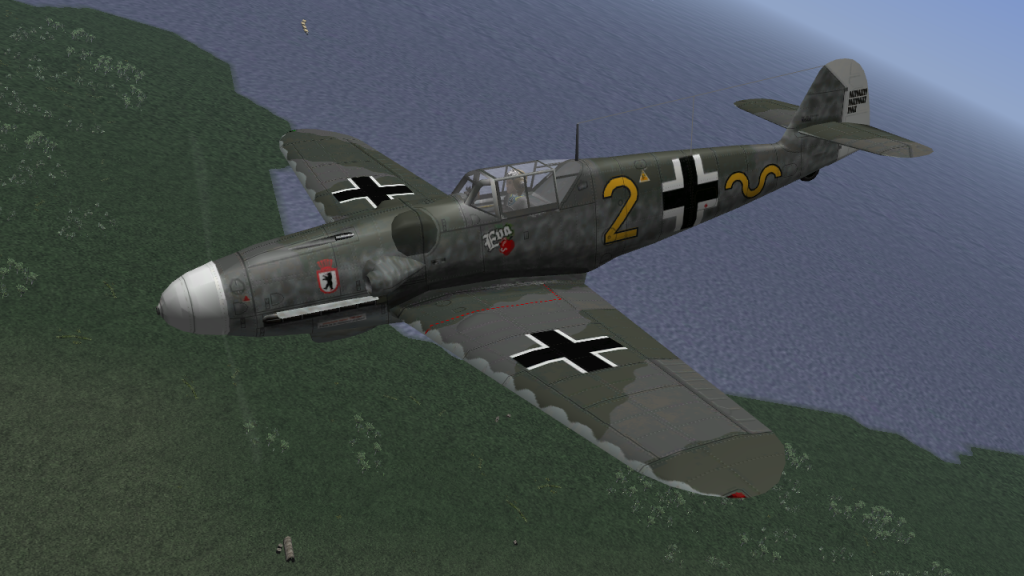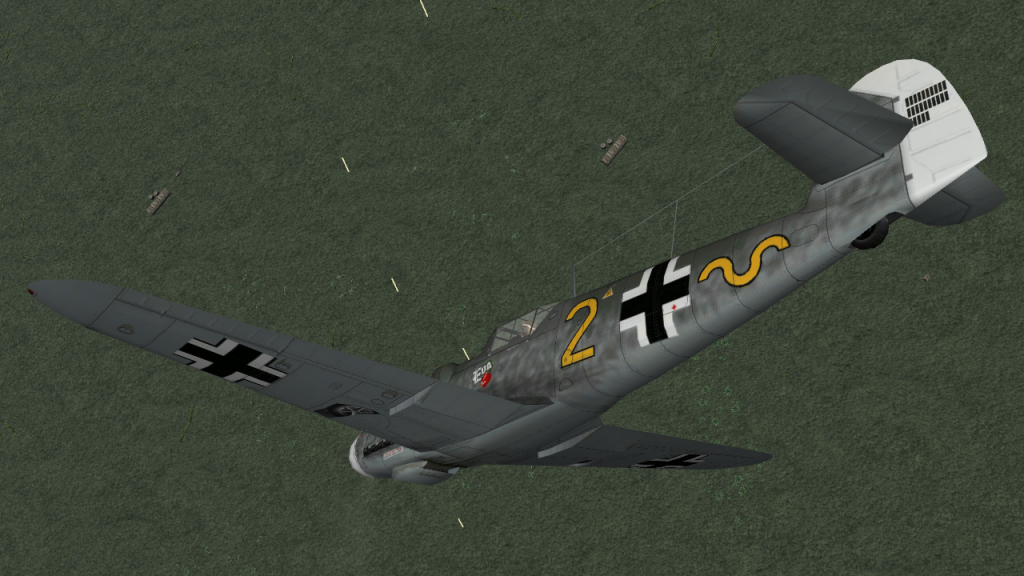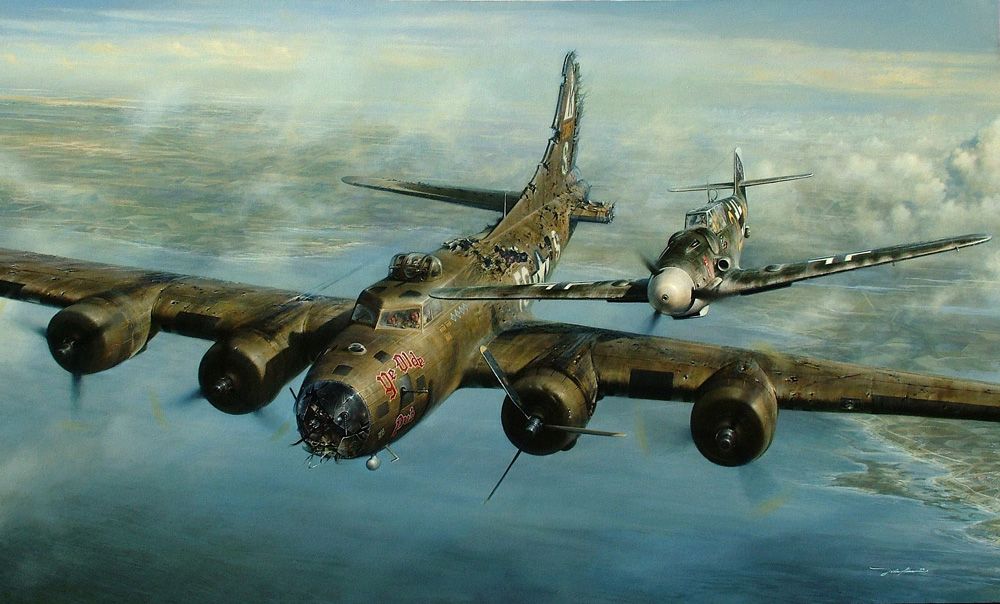

Unlike many Luftwaffe aces, Franz Stigler is not famous for the many aircraft he destroyed. Instead, what separates Herr Stigler from the other aces is the story of one B-17 he did not shoot down.
On Dec. 20, 1943, Stigler encountered a severely damaged B-17, "Ye Olde Pub", limping back to England. Piloted by 2nd Lt. Charles Brown, the "Ye Olde Pub", had taken heavy damage from flack and German fighters on a bombing run over Northern Germany. The #2 engine had been knocked out, #4 was damaged, the plexiglass nose had been blown off, large holes had perforated the fuselage from the main wings to the tail, and the left horizontal stabilizer was ripped away from the aircraft.
Stigler, while his Bf109G-6 "Eva", was being rearmed after his group had attacked the bomber stream, had seen the stricken bomber slowly attempting to escape without further damage. He soon took off in persuit, hoping to claim his 3rd bomber on the day. Stigler started his attack run from what he calls the "classic position" - high 6 o'clock. A he closed to about 500 ft, he saw the tail guns were not aimed at his 109 but instead pointed down. Holding his fire, Stigler came in closer and noticed the tail gunner "slumped over his gun, his blood streaming down its barrel." Franz pulled along side and began to examine what remained of the bomber and her crew. “The B-17 was like a sieve. There was blood everywhere. I could see the crew trying to help their wounded. Through the gaping hole in the fuselage, I could see crewmen working frantically to save a comrade whose leg was blown off. I thought to myself, ‘How can I shoot something like that?’ It would be like shooting a man in a parachute. When I was flying in North Africa, my Commander (Gustav Roedel, who had 98 victories) said, ‘You are a fighter pilot. If I ever hear of you shooting someone in a parachute, I’ll shoot you myself.’” Franz concluded that the Pub was, “. . . the most badly damaged plane I ever saw, still flying.”
Charles Brown soon discovered his most unusual wingman. “There, flying very close formation with his wingtip only about three feet from our wingtip was an Me-109! For a moment I thought that I had lost my mind and if I briefly closed my eyes it would disappear. I tried—he was still there! Upon his return to the cockpit, I pointed out our visitor to Pinky (copilot Pinky Luke). The German pilot nodded, but Pinky and I were in a state of shock and did not return the greeting.”
Using his hands, Stigler tried to relay instructions to land in Germany - they were ignored. He then motioned that Brown should bring his Boeing to neutral Sweden - this was also met with no response. Lt. Brown had only one destination in mind: England - 2 hours away. “I know he (Charlie) closed his eyes, he opened them again, and I was still there. They knew they were helpless.”
For several minutes Franz stayed on their wing. "If I would have passed up the escort, then they would have to watch out. But if you're hanging there with this plane, even if another fighter would have come along, they wouldn't have shot; they wouldn't have interfered with you."
Lt. Brown was not worried about other fighters, but the 109 off his left wing was of much concern. “Although the German pilot appeared relaxed, I was most uncomfortable and felt that at any time he would unleash some type of new German weapon to destroy us . . . I finally surmised that he was out of ammunition, but I was amazed at his curiosity and daring in flying that close to even a badly crippled enemy bomber.” Charlie called his flight engineer, “Frenchy” Coulombe, into the cockpit to, “ . . . join Pinky and me in observing the audacious German pilot. Now, we had three wide-eyed American airmen in the cockpit . . . after a few more seconds, my nerves could stand it no longer and I asked Frenchy to get back in his turret and point his guns at the German pilot. When the fighter pilot saw the engineer’s head appear in the top turret, he saluted, rolled over, and was gone.”
With two .50 cal machine guns now pointed at this 109, Franz determined that his presence was no longer welcome. “Well, I hope you make it. So, I waved off, saluted him, and flew back to the airport.”

"A Higher Call" by John D. Shaw
http://www.valorstudios.com/Franz-Stigler-Charlie-Brown.htm